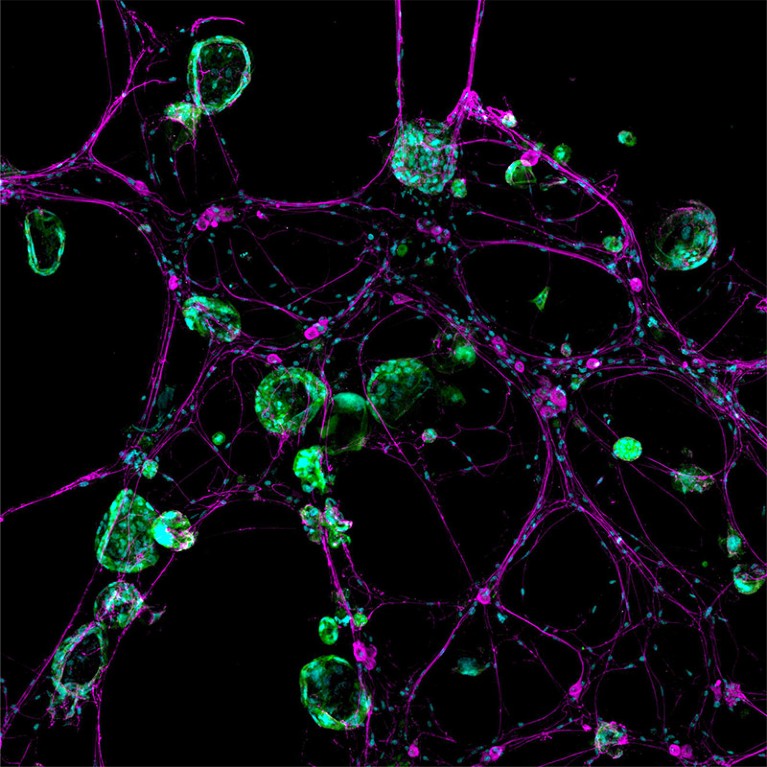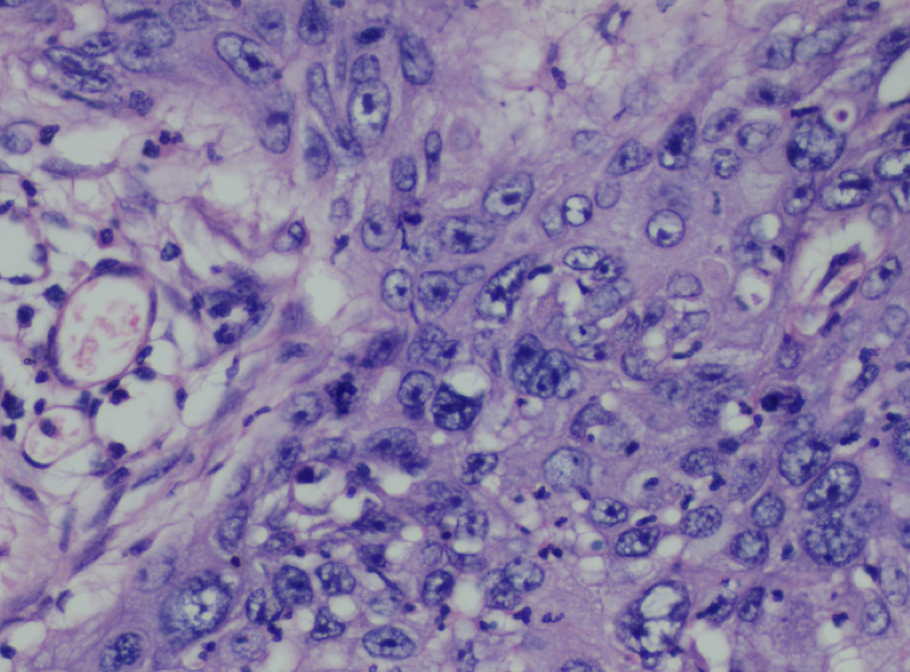# How cancer hijacks the nervous system to grow and spread

A 3D model system shows how nerve cells (magenta) interact with cancer cells (green). Credit: Jennifer Su, Peter Wang, Nicole Lester, William L. Hwang
In 2017, cancer neuroscientist Humsa Venkatesh witnessed remarkable electrical activity in cells from a human brain tumor known as a glioma. The continuous and rapid conversations between cancerous brain cells were unexpected and raised questions about how the tumor’s electrical communication might be enabling its survival and growth. This discovery was later published in a 2019 paper in Nature, along with another article that reached the same conclusion: gliomas are electrically active and can wire themselves into neural circuits to aid their growth.
The findings have been significant in the emerging field of cancer neuroscience, where researchers are exploring the various ways cancer, even outside the brain, exploits the nervous system for its own benefit. This interaction is just beginning to be understood, and as scientists delve deeper into the relationship between cancer and the nervous system, therapies targeting these connections are emerging.
First recognized almost 200 years ago, the invasion of cancer cells into and around nerves, known as perineural invasion, signifies aggressive tumors and poor health outcomes. For a long time, nerves were thought to be passive victims of cancer invasion, but research in recent years has revealed that nerves actively seek connections with cancer cells, contributing to cancer spread. Additionally, studies have shown that cancer can influence the nervous system by inducing neuron-like features in tumor cells or exerting effects on different types of nerves.
The interaction between cancer and the nervous system varies across different types of cancer. For instance, in pancreas and stomach cancer, different types of nerves have opposing effects on tumor growth, and in brain cancers, cancer cells can form direct synapses with neurons, aiding their growth. Furthermore, certain nerves can suppress immune cell activity, providing a safe harbor for cancer cells and making them less susceptible to the body’s immune responses and medications.
The discoveries made in this field have opened up potential treatment options targeting the nervous system. Existing drugs with established safety profiles, such as beta blockers, are being repurposed to disrupt signals from sympathetic nerves that drive cancer progression in various types of cancer. Clinical trials have also shown promising results in combining chemotherapy with beta blockers, indicating their potential in cancer treatment.
As the research in this area progresses, it is becoming evident that a range of drugs with complementary effects may be necessary to effectively control cancer. The field is still in its early stages of unraveling this complex relationship, and further investigations are needed to fully understand the implications and potential treatment options.












